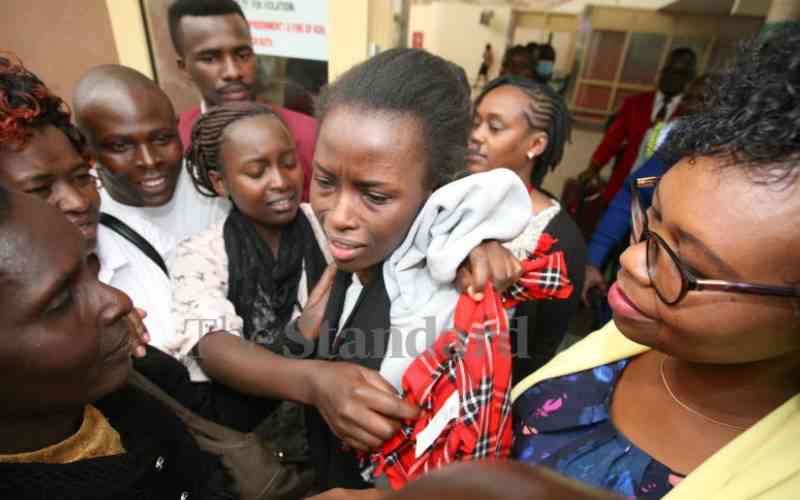×
The Standard e-Paper
Home To Bold Columnists

Tears flowed freely on Clara Jerotich's face as she tightly hugged her daughter after days of anxiety, pain and hope.
Diana Chepkemoi's arrival at Jomo Kenyatta International Airport (JKIA) on Tuesday, September 6, ended the cry of a mother who has been praying to see her child alive after weeks of distraught calls miles away from her home.